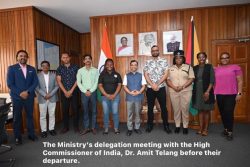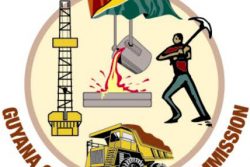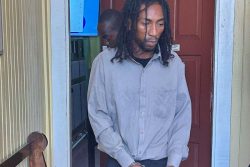Dear Editor,
If every Guyanese could read and reflect on what Eusi Kwayana has written in his book No Guilty Race, I believe he/she would have a better insight to evaluate certain perceptions that are presented in the press by some columnists and letter writers. Mr Kwayana who was associated with both major political parties at different times and then parted ways with each when he was not prepared to compromise his principles, tells us these days how each of the two major race groups in Guyana sees the “truth” through their own lenses. In my view, positive change will only come when there is an open, honest and objective discussion. Unless each of the two major race groups is able to walk in the other’s shoes, the future will be as difficult as the past.
In his letter captioned ‘It’s hard to get past the leader’ in the September 3, 2009 issue of the Stabroek News, Frank Fyffe writes, “I have stated before that one of the big differences between our two main ethnic races is that Africans – intellectuals, middle class, but mainly the masses – have known how to constantly express disagreement and show defiance by open demonstration against their own on the question of right/wrong, justice/injustice, as we saw was done against Burnham’s PNC time and time again. Indians on the other hand are more tenacious in their support for their own, excepting for a few.”
What Mr Fyffe’s statement is missing in relation to defiance by Africans against Burnham’s PNC is timing, a factor that is very critical in any analysis. Eusi Kwayana is one of the few African Guyanese who very early on challenged the PNC when he made a complaint to the Ombudsman against two ministers of the government. In 1973 when most Guynese knew the elections were rigged, African intellectuals were offering commentaries on radio praising the PNC for its voter gains in Indian dominated areas. If tapes of those broadcasts are available, many would now hang their heads in shame. What caused the change among the masses of Africans is ‘bread and butter’ issues. The tide turned when the ‘collar and tie’ brigade had to go and do field work as the ordinary labouring class in the hot tropical sun; when the line-up for basic foodstuff took hours, if not days; when schoolchildren and office workers could not reach their destination in the city before midday; when Christmas was de-emphasized and church officials were seen as the enemy, and so on.
As for Indians being “more tenacious in their support of their own,” timing is again important. Prior to 1992, the PNC was in power for 28 years, with every election after 1964 being fradulent, yet shortly after its first term in office, the PPP (after winning democratic elections) was confronted with hostility aimed at bringing down the government. And the marches in the city by the opposition parties in those days always resulted in beatings of Indians and closing down of businesses. Whether they were responsible or not, opposition marches in the city ended in violence against Indians. Is it surprising then that Indians would be “tenacious in their support of their own”? The point is that Indians were not given the time to develop their dislike for the PPP, in fact they were forced by the opposition parties to stay with PPP.
Further, Eric Phillips in a letter captioned ‘It’s a moral imperative that these two imbalances be addressed’ in the Kaieteur News of September 13, 2009 writes, “If Indians did not vote for Desmond Hoyte who was very pro-Indian and who engaged the REFORM to bring about fundamental change in the PNC… why would they vote for the PNC or the AFC now?” Again, the impression is conveyed that Indians are more apt to vote on the basis of race. Well, Mr Phillips seems to have missed the story that Africans in the PNC did not elect Mr Murray recently as the leader of that party, although Mr Murray is seen as an outstanding party member with all the requisite qualities to be leader. And if we go further back to 1992, why did Africans stick with the PNC after all the years of food lines, Walter Rodney’s murder, etc? Putting aside the PPP, why did they not vote for the WPA? Could it be that they did not want to split the African vote, the same charge that is often levelled against Indians? Seems to me that this “tenacious” factor is common to both race groups.
Yours faithfully,
Harry Hergash







